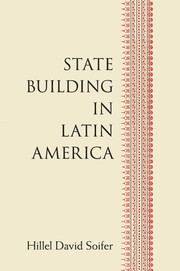Description
State Building in Latin America
Author: Soifer Hillel David
State Building in Latin America explores why some countries in the region developed effective governance while others did not.
Language: English
Subject for State Building in Latin America:
State Building in Latin America
Publication date: 10-2016
Support: Print on demand
Publication date: 10-2016
Support: Print on demand
115.29 €
In Print (Delivery period: 14 days).
Add to cart
State Building in Latin America
Publication date: 06-2015
Support: Print on demand
Publication date: 06-2015
Support: Print on demand
Description
/li>Contents
/li>Biography
/li>
State Building in Latin America diverges from existing scholarship in developing explanations both for why state-building efforts in the region emerged and for their success or failure. First, Latin American state leaders chose to attempt concerted state-building only where they saw it as the means to political order and economic development. Fragmented regionalism led to the adoption of more laissez-faire ideas and the rejection of state-building. With dominant urban centers, developmentalist ideas and state-building efforts took hold, but not all state-building projects succeeded. The second plank of the book's argument centers on strategies of bureaucratic appointment to explain this variation. Filling administrative ranks with local elites caused even concerted state-building efforts to flounder, while appointing outsiders to serve as administrators underpinned success. Relying on extensive archival evidence, the book traces how these factors shaped the differential development of education, taxation, and conscription in Chile, Colombia, Mexico, and Peru.
Introduction: the origins of state capacity in Latin America; 1. The emergence of state-building projects; 2. A theory of state-building success and failure; 3. Alternative historical explanations and initial conditions; 4. State projects, institutions, and educational development; 5. Political costs, infrastructural obstacles, and tax state development; 6. Local administration, varieties of conscription, and the development of coercive capacity; 7. Conclusion.
Hillel Soifer is an assistant professor of Political Science at Temple University, Philadelphia. His research has been published in journals such as Comparative Political Studies, Studies in Comparative International Development and the Latin American Research Review. He was awarded the 2013 Alexander George Award for Best Article by the Qualitative and Multi-Method Section of the American Political Science Association, and has served as the Peggy Rockefeller Visiting Scholar at the David Rockefeller Center for Latin American Studies, Harvard University, Massachusetts.
© 2024 LAVOISIER S.A.S.




